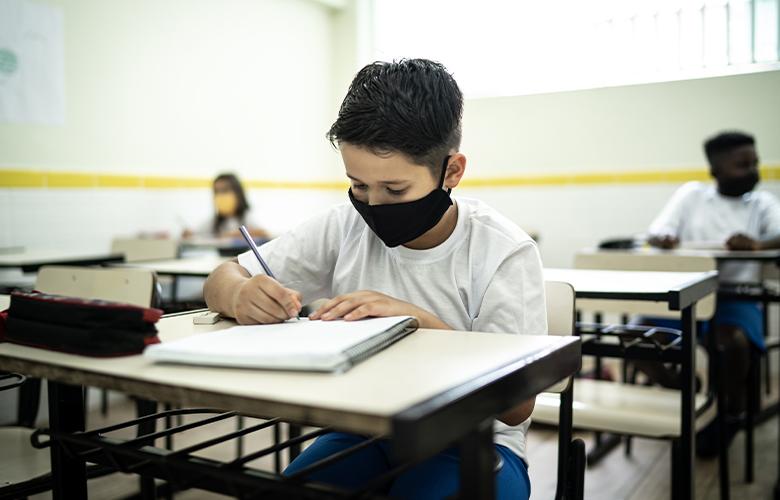
On his first day as a freshman, Ethan walks into a half-empty classroom. He sits down at a desk six feet away from his classmates. He thinks he recognizes some kids, but it is hard to tell from their masked faces. He desperately wants to strike up a conversation, but his shyness is heightened by the awkward classroom setup. In fact, none of the students talk to each other; they silently sit in their own Plexiglas-covered islands. Outside the classroom, students have few opportunities to socialize—lunch in the cafeteria has been cancelled and social interactions in the hallway between classes are discouraged. Ethan leaves school feeling scared and adrift.
Ethan is not alone. Across the United States, the COVID-19 pandemic is creating new challenges for students. Without question, we must lower the risk of contagion and keep students and teachers safe. Yet millions of students are struggling to start and sustain friendships. Millions more are isolated at home, and school is a two-dimensional computer screen in their bedrooms.
As both a researcher and a dad, I know that friendships play a key role in young people’s healthy development and academic success. Relationships with friends help children and youth build social and problem-solving skills, manage emotions, and learn appropriate behaviors. Friendships also promote academic success and reduce self-harming and other-harming behaviors.
Educators and school leaders can take the following actions to help students form and maintain friendships during the pandemic:
- Create new ways for students to connect: We have taken away many opportunities for students to interact, and we must replace them. Instead of socializing time in the cafeteria, educators can build in time for students to socialize in virtual spaces. We can replace group work in the classroom with assignments students can collaborate on virtually.
- Recognize that some students will need extra help: Not all students can easily and naturally develop the social and emotional skills they need to navigate uncertainty, overcome challenges, and develop relationships. Educators can support these students in particular by creating formal opportunities to socialize, such as teacher-led social groups.
Protecting students from COVID-19 is critical to their health and well-being, but so is helping them develop and maintain friendships. Now more than ever, we must find ways to proactively guide students in building the relationship skills that will support their lifelong success. Learn more about how EDC can support your district in building students’ social and emotional skills, including relationship building, here.
To learn about EDC’s work to support social and emotional learning and mental health among students, visit https://www.edc.org/sel-mental-health.
| Shai Fuxman is a senior scientist at EDC with expertise in social and emotional learning (SEL) and behavioral health. |

Add new comment